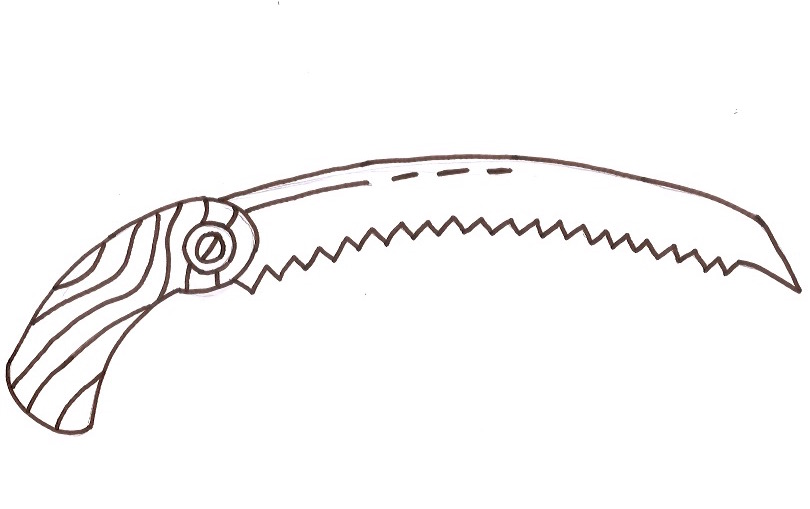The pseudynom is not what you’re thinking. I’m talking about Personal Organizational Systems here. Not an official phrase, but fitting for this discussion. They can range from a pocket to a strategically organized backpack, with all the features of a spaceship set for a 5 year voyage.
I remember a professor in college bringing it up in a landscape maintenance class. His personal favorite was a ‘fanny-pack’ where he kept his phone and some other personal items (pruners?), I can’t recall. He brought it in and wore it for the demonstration. I remember how impressed I was with this concept of having a small, personalized vessel with all the immediate things that help you get through the day. A fanny pack! What an amusing name.
POS are so vast and quirky and sometimes turn into a reflection of ourselves.
I know many climbers that utilize different sized Camelback pack systems. These packs come in a variety of sizes and can accommodate many different items. Some things that a bigger pack makes possible to carry is a lightweight rain jacket in case bad weather is coming, or a down vest or jacket that gets put away after a cool morning has warmed up, some food, a hydration bladder, maybe rigging or a long lanyard, phone and maybe first aid depending on the size. Certainly this type of POS doesn’t have to be used on every job, but larger, more demanding and time consuming projects will benefit nicely from this level of preparation, sustainability and self-sufficiency. Especially while aloft. Sure, if you have ground support that can tie and untie things, then you may not need such a complex POS. It’s definitely situational. The comfort it provides can ultimately lead to a better mindset and more productivity. Throw in a light weight hammock and do lunch the right way by never touching the ground. No pun intended, the sky is the limit.
*After many long hours in the canopy I’ve experienced some pretty rough chaffing under my arms from backpack style systems.
The smaller category would include the saddle bag and fannypack-style systems. Also, many rock climbing chalk bags have adapted well into this category, and there are many climbers out there customizing adapted saddle bags. Countless manufacturers make POS in this size range and style, and the models continue to evolve. I’m thinking from 5 to 15 liters or so in volume, although that will fluctuate with design of course. The downside in these systems is that you lack the room for a larger hydration bladder or a second rope, which can sometimes be necessary to get through larger canopies in the heat of the summer. Not so needy you say? A bottle of water will ride for sure, in the bag or clipped to the saddle itself. On the plus side, it will be less weight to haul around, and less gear overall you’ll have to manage, while still having the benefit of carrying around your treats of the trade. Also, no chaffing.
I’ve been especially keen on trying the vest-style systems different companies make that are popular among ultra-runners and endurance athletes. The vest distributes gear differently than a backpack, it seems to be lighter and you still get the benefit of the hydration bladder compatibility. There is good breathability also depending on the material used. I’ve seen many mesh designs. Not sure if they can withstand the rigorous environment of tree work?
Also, in both the vest-style and backpack-style designs, a chest-harness tender-thingy can be built into the straps for tending slack in the climbing system while ascending. Even food snacks like granola bars and candy bars and gels can be kept in the small pockets of the vest, along with keys, laser pointers and ziplock bags for leaf and twig sampling.
I don’t think POS should be limited to working aloft either. Even when pruning ornamentals, bidding work, root management projects or tree inventories and consulting field work, the POS is a tool no arborist should be without.
A list of things I have or may wish to carry in my POS, depending on size and ability to accommodate:
Phone, GoPro, snacks, drinks/hydration bladder, extra climbing gear, music (external speaker), jacket/vest, extra climbing line/lanyard, rigging gear, aerial inspection tools, cabling gear/hardware, headlamp (for camping aloft), hammock (for lunching aloft), aerial rescue tools, personal first aid, wasp spray, bug spray, notebook for writing nature poetry/recording thoughts/dreams, hand pruners, folding saw, tape measure, sunglasses/safety glasses, gloves, buff, extra tee shirt, extra underwear, extra throw line, work orders, Jeff Jepson’s The Tree Climber’s Companion.
Point being: a POS can be a lifesaver, or just a place to keep your coffee cakes.





Leave a Reply
Your email is safe with us.